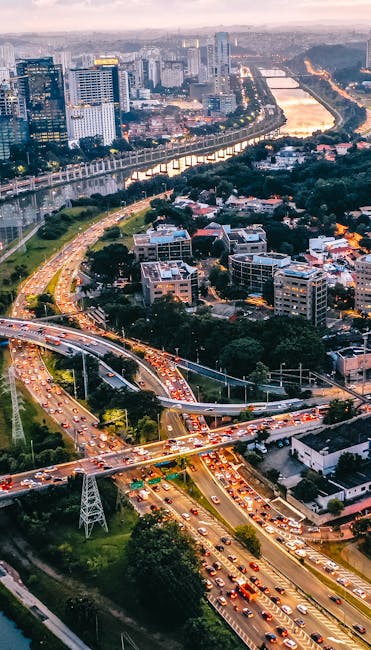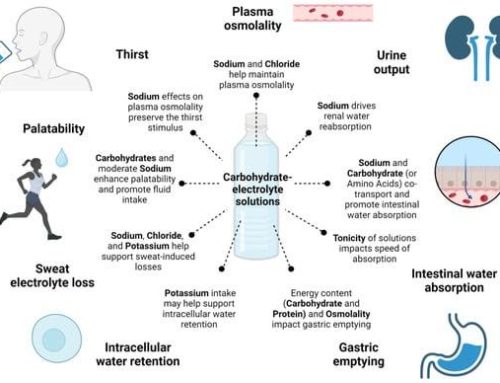Are you a fitness enthusiast who also loves to fast? We hear you! It’s tough to keep up with both, especially when you want to gain muscle. But what if we told you there’s a way to maximize those precious gains during your fasting periods? That’s right, folks, we’re talking about weight lifting! And no, we don’t mean just lifting your fork to your mouth during your feeding window. Buckle up and get ready to lift some serious iron while fasting. It’s time to pump up those muscles while you’re in a hungry, hangry state. Don’t worry; we’ll guide you through it all. Get ready for some lifting and some laughing, because this article is going to be a fun ride.
Contents
- 1 1. Enhancing Muscle Growth with Weight Lifting During Intermittent Fasting
- 2 2. Understanding the Benefits of Fasting on Muscle Development
- 3 3. Key Strategies to Optimize Muscle Gains While Fasting
- 4 4. Leveraging Nutrient Timing to Maximize Muscle Protein Synthesis
- 5 5. Exploring the Role of Resistance Training in Fasting-Induced Muscle Hypertrophy
- 6 Don’t Fast and Furious, Lift and Feast!
1. Enhancing Muscle Growth with Weight Lifting During Intermittent Fasting
Why you should lift weights during intermittent fasting
As a beginner, weight lifting may seem daunting, but don’t worry, even if you can barely lift a bottle of water, you can still benefit from resistance training during intermittent fasting. One of the biggest benefits of lifting weights during fasting is boosting muscle growth. When you restrict calories, your body starts to use fat as fuel, which can help you shed those stubborn pounds, but it can also cause muscle loss. But when you lift weights during fasting, you stimulate muscle protein synthesis, which helps build and maintain muscle mass.
How to optimize muscle growth with weight lifting
To increase muscle growth during intermittent fasting, focus on compound exercises such as squats, deadlifts, bench press, and pullups. These exercises target more than one muscle group, which means more muscle fibers get activated and adapted. Aim to perform 3-4 sets of 8-12 reps per exercise, and ensure that you are challenging yourself with the weight. Don’t be afraid to push yourself, as you’re not eating, you won’t have to worry about feeling sluggish during a workout.
What to eat after weight lifting
After you’ve finished your weight lifting session, your muscles need to be replenished with nutrients to repair and grow. During intermittent fasting, you may have a smaller eating window, so it’s crucial to ensure you’re getting the right nutrients you need. You should aim to have a post-workout meal that is rich in protein, such as chicken, fish, or tofu, and includes healthy fats and carbs. Consider adding some vegetables to the mix as well to get all the essential vitamins and minerals your body needs to recover. With a balanced meal, you’ll be ready to hit your next workout and continue reaping the benefits of weight lifting during intermittent fasting.
2. Understanding the Benefits of Fasting on Muscle Development
Muscles are the powerhouse of the body, and they need fuel to function. Fasting is a powerful tool that benefits muscle development. By controlling your eating habits, you train your body to be more efficient in muscle building. Here are some of the benefits of fasting on muscle development.
1. Intermittent fasting can help burn fat and improve insulin sensitivity, leading to more significant muscle gains. By limiting calorie intake in specific windows, you can improve nutrient partitioning and ensure that your body uses food for fuel more efficiently.
2. Fasting stimulates the production of human growth hormone (HGH), which is essential for muscle development. A spike in HGH promotes muscle growth, strength, and endurance.
3. Fasting may also reduce inflammation in the body, allowing for better muscle recovery and repair. By giving your digestive system a break, you allow your body to focus on healing and repairing damaged muscle tissue.
In summary, fasting can be a powerful tool for muscle development. It helps burn fat, improve insulin sensitivity, stimulate HGH production, and reduce inflammation in the body. So next time you’re feeling hungry, remember that you’re doing yourself a favour by supporting muscle growth and development. Just don’t forget to fuel up at the right times!
3. Key Strategies to Optimize Muscle Gains While Fasting
Muscle gains while fasting might sound like an oxymoron, but it’s totally possible. Here are some key strategies to help you maximize those gains and prove those naysayers wrong.
1. The right fasting plan: Intermittent fasting is all the rage right now. But let’s be real, there are only so many hours you can go without food before your stomach starts grumbling louder than a motorcycle. The key is to find a fasting plan that works for you. Whether it’s 16:8, 20:4 or OMAD (one meal a day), pick a plan that you can stick to without feeling like you’re going to pass out.
2. The right training plan: When you’re fasting, your muscles are in a highly catabolic state, which means they’re breaking down faster than a Jenga tower in the hands of a toddler. To counteract this, your training plan needs to be on point. Focus on compound movements like squats, deadlifts, and bench press. This will help you preserve muscle mass and stimulate muscle growth.
3. The right nutrition plan: Just because you’re fasting doesn’t mean you can neglect your nutrition. Eating the right foods at the right time is crucial for optimizing muscle gains. Make sure you’re getting enough protein to support muscle repair and growth. Include healthy fats and complex carbs in your meals to fuel your workouts and keep you feeling full. And don’t forget to hydrate, water is the lifeblood of gains.
In the end, muscle gains while fasting is all about finding the right balance. Balancing your fasting plan, training plan, and nutrition plan will help you see the results you want. So let the haters hate and keep crushing those gains- with a little help from fasting.
4. Leveraging Nutrient Timing to Maximize Muscle Protein Synthesis
When it comes to building muscle, the timing of your nutrient intake is just as important as the quantity and quality of your food. But don’t worry, I’m not going to tell you to set an alarm for 2 AM to chug a protein shake, although that would be hilarious.
Instead, let’s talk about how to maximize muscle protein synthesis with nutrient timing. Firstly, pre-workout nutrition is crucial for optimal gains. Eating a carbohydrate-rich snack 30 minutes prior to hitting the weights can increase insulin levels, which in turn, can enhance muscle growth. So, grab a banana or a handful of gummy bears, and you’ll be well on your way to Hulk status.
Secondly, post-workout nutrition is equally important. The anabolic window, which is the 30-minute period after your workout, is when your muscles are most responsive to nutrient uptake. So, it’s essential to consume a combination of protein and carbohydrates during this time to replenish glycogen stores and stimulate muscle growth. A turkey sandwich with a side of sweet potato fries sounds like an excellent post-workout meal to me!
Finally, don’t forget to fuel up before bed. Overnight fasting can lead to muscle breakdown. Therefore, consuming a slow-digesting casein protein before hitting the hay can prevent catabolism and promote muscle growth. So, maybe skip the midnight Taco Bell run and opt for a nice glass of milk instead.
Remember, nutrient timing is a game-changer when it comes to building muscle. With a little planning and strategic snacking, you’ll be on your way to a bigger, stronger you in no time. Now, go get your gains!
5. Exploring the Role of Resistance Training in Fasting-Induced Muscle Hypertrophy
It’s no secret that fasting has taken the fitness world by storm. But have you ever stopped to think about how resistance training and fasting go hand in hand? Well, grab your dumbbells and sweatbands because we’re about to explore the role of resistance training in fasting-induced muscle hypertrophy.
First things first, let’s break down the science behind fasting-induced muscle hypertrophy. When we fast, our body’s glycogen stores are depleted, causing it to turn to fat for energy. As a result, the levels of human growth hormone (HGH) and insulin-like growth factor-1 (IGF-1) increase, leading to an increase in muscle protein synthesis. This is where resistance training comes into play.
By subjecting our muscles to resistance training during a fast, we’re essentially providing our bodies with the stimulus it needs to create muscle tissue. This, coupled with the increase in HGH and IGF-1 levels, can lead to some serious muscle gains. But don’t take our word for it, just ask Dwayne “The Rock” Johnson. That guy fasts and lifts heavy, and he’s built like a Greek god (or a human boulder, depending on who you ask).
So, if you’re looking to take your fasting game to the next level, grab some weights and get to work. Just remember to stay hydrated, eat plenty of protein, and don’t forget to flex in the mirror every now and then. Happy lifting!
Don’t Fast and Furious, Lift and Feast!
Congratulations, fitness enthusiasts! You’ve learned the art of maximizing muscle gain during fasting with weight lifting. Now, you’re just a few steps away from achieving the perfect body you’ve always dreamed of.
But remember, fasting on its own may give you the hunger pangs, but weight lifting without a proper diet will pull the rug out from under your feet. So, don’t forget to fuel your body with the right nutrients to maximize that hard work at the gym!
In a world of fast and furious, always remember to lift and feast. Happy Gains!








Leave A Comment